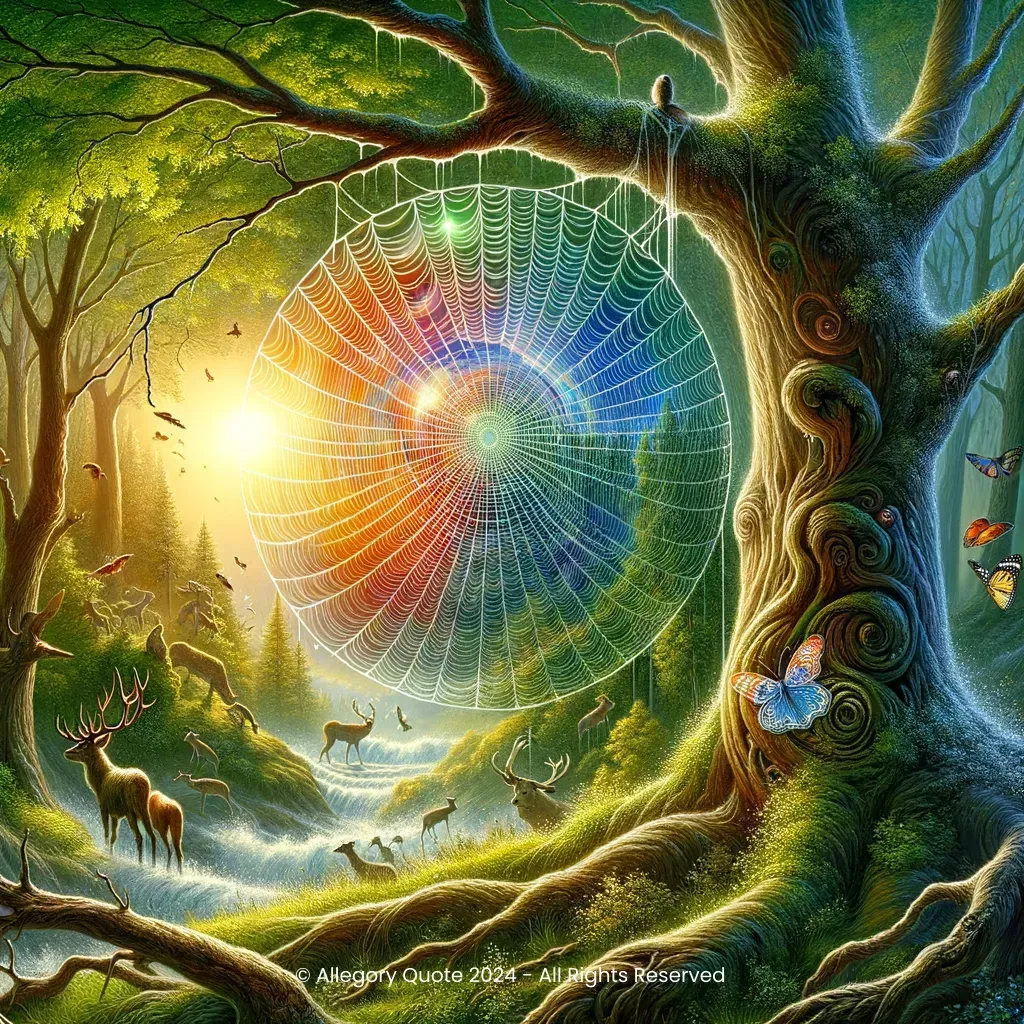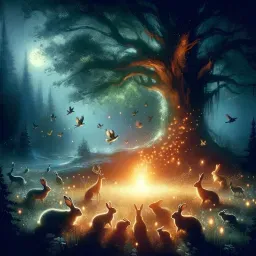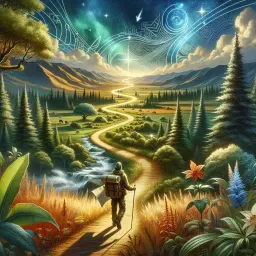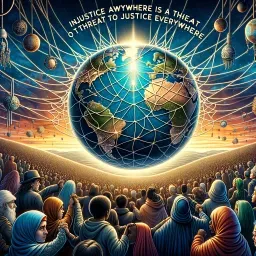”When one tugs at a single thing in nature,
he finds it attached to the rest of the world“

0
0
0
0
- Meaning
- The phrase "When one tugs at a single thing in nature, he finds it attached to the rest of the world" underscores the interconnectedness of natural systems. It highlights the idea that every element in nature is interlinked with others, forming a complex and interdependent web of life. This means that any action affecting one part of an ecosystem has repercussions throughout the entire system. This philosophical view emphasizes the importance of considering the environmental impact of human activities.
- Allegory
- The spider web represents the intricate and delicate connections within the natural world. Each dewdrop signifies an individual element of nature, and the ripple effect caused by tugging at one strand illustrates the impact one action can have on the entire ecosystem. The lush, vibrant forest, filled with various forms of wildlife, highlights the biodiversity and interdependence of species. The light breaking through the canopy symbolizes hope and the enlightenment gained by understanding and respecting these connections.
- Applicability
- This phrase can be applied to personal life by fostering a mindset of interconnectedness and mindfulness. It encourages individuals to think about how their actions might affect the environment and other people. This awareness can lead to more sustainable living practices, compassion towards other living beings, and a deeper respect for the natural world. Scholars and advocates often use it to argue for holistic approaches to environmental stewardship.
- Impact
- This phrase has had a significant impact on environmental thought and conservation efforts. It has inspired countless individuals and organizations to consider the broader implications of their actions on the environment. The holistic view expressed in the phrase supports policies and practices aimed at sustainability. It frequently appears in environmental literature, speeches, and campaigns, reinforcing the message that humans are part of, and responsible for, the natural world. It also contributes to discussions about ecological balance, biodiversity, and the global climate crisis.
- Historical Context
- John Muir lived during the late 19th and early 20th centuries, a time when the environmental conservation movement was gaining momentum in the United States. Muir's advocacy for the preservation of wilderness areas helped inspire the establishment of national parks and fostered public appreciation for nature. His work was contemporaneous with the Industrial Revolution, a period marked by rapid industrialization and significant environmental degradation, making his message particularly pertinent.
- Criticisms
- Some criticisms of this phrase might focus on its broad and somewhat poetic nature, which could be seen as lacking specific practical advice. Additionally, some might argue that emphasizing interconnectedness could be used to justify inaction, suggesting that complex systems are beyond human control. However, these arguments often overlook the phrase's intention to inspire thoughtful and conscientious behavior.
- Variations
- Variations and interpretations of this phrase might be found in different cultures' proverbs that highlight the interdependence within the ecosystem. For instance, many indigenous cultures express similar sentiments through stories and teachings that regard nature as a familial entity where every member is connected and plays a vital role. These variations underscore a universal understanding of the interrelatedness of life.
-

She walks in beauty, like the night.
-

No act of kindness, no matter how small, is ever wasted.
-

We must be the great arsenal of democracy.
-

Heavy is the head that wears the crown.
-

A foolish consistency is the hobgoblin of little minds.
-

Not all those who wander are lost.
-

Injustice anywhere is a threat to justice everywhere.
-

One touch of nature makes the whole world kin.
-

If you would be loved, love, and be lovable.
-

I took the one less traveled by, and that has made all the difference.
No Comments